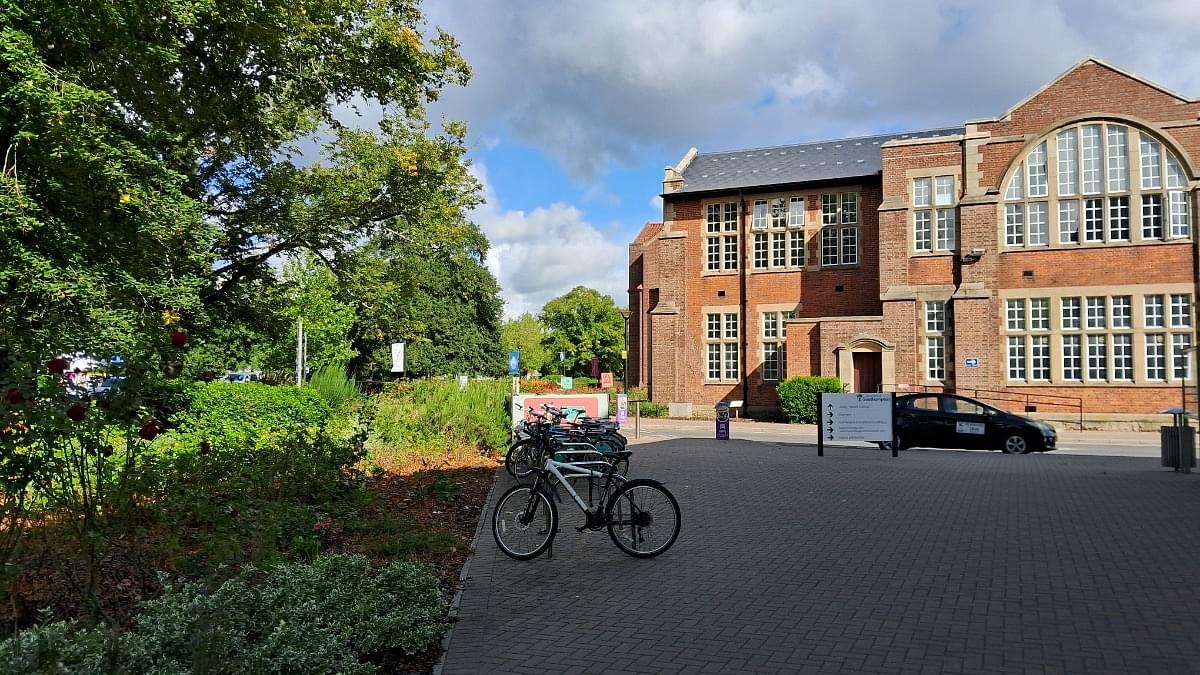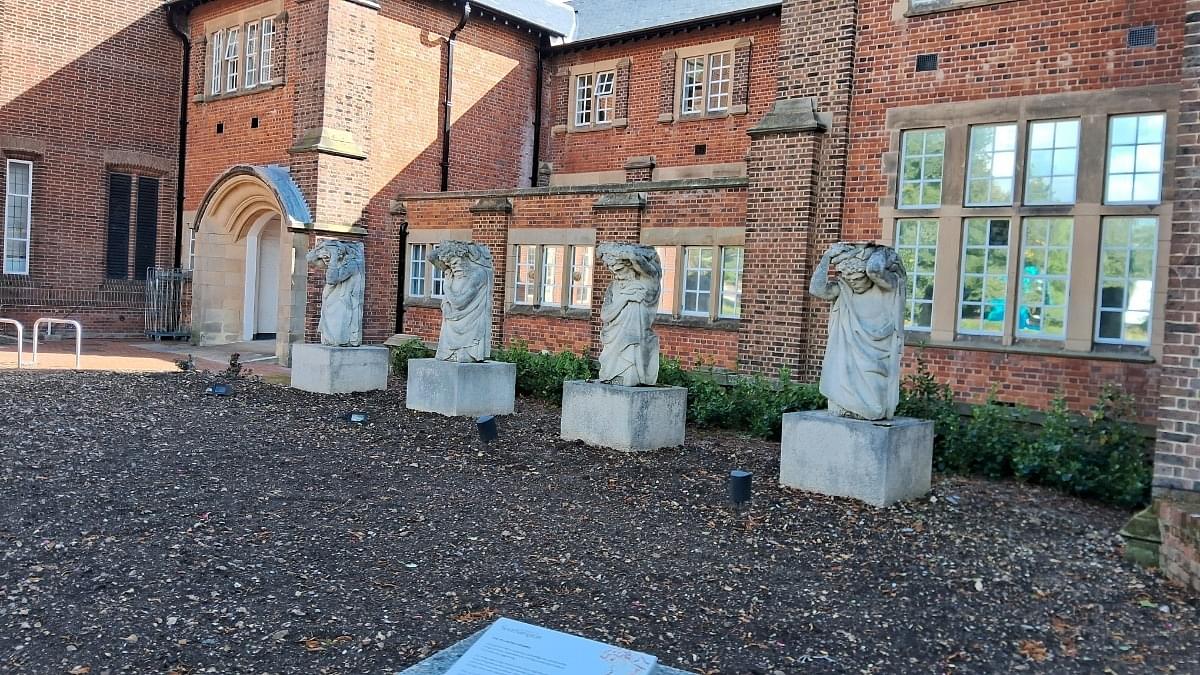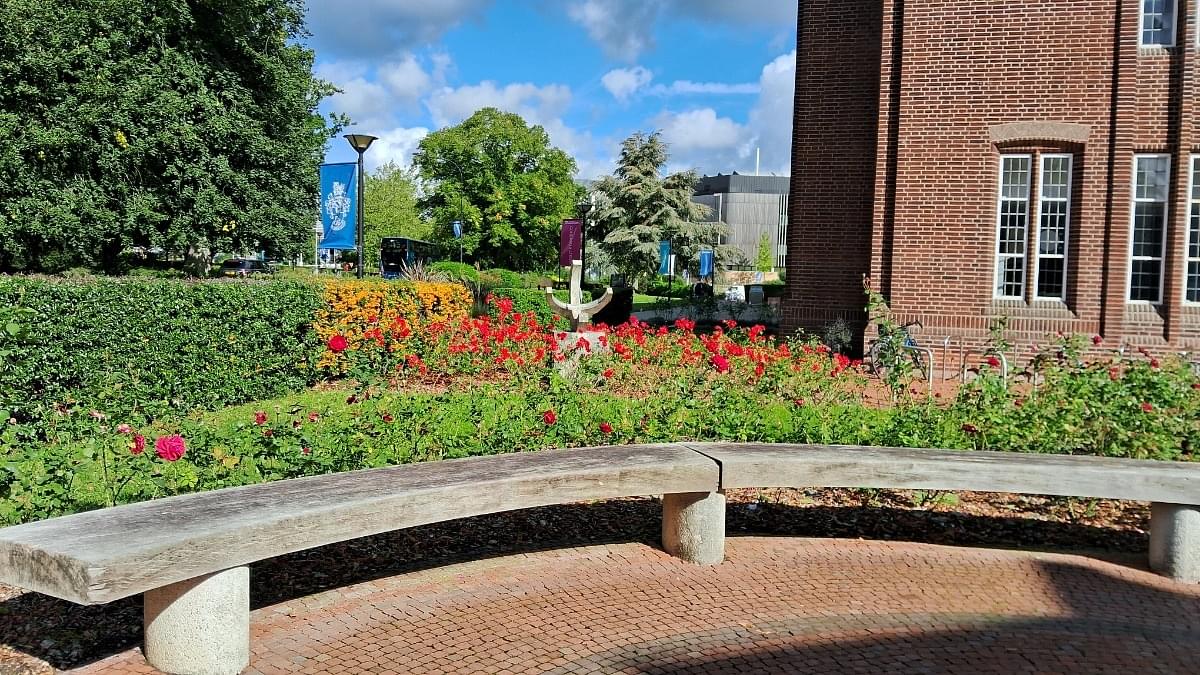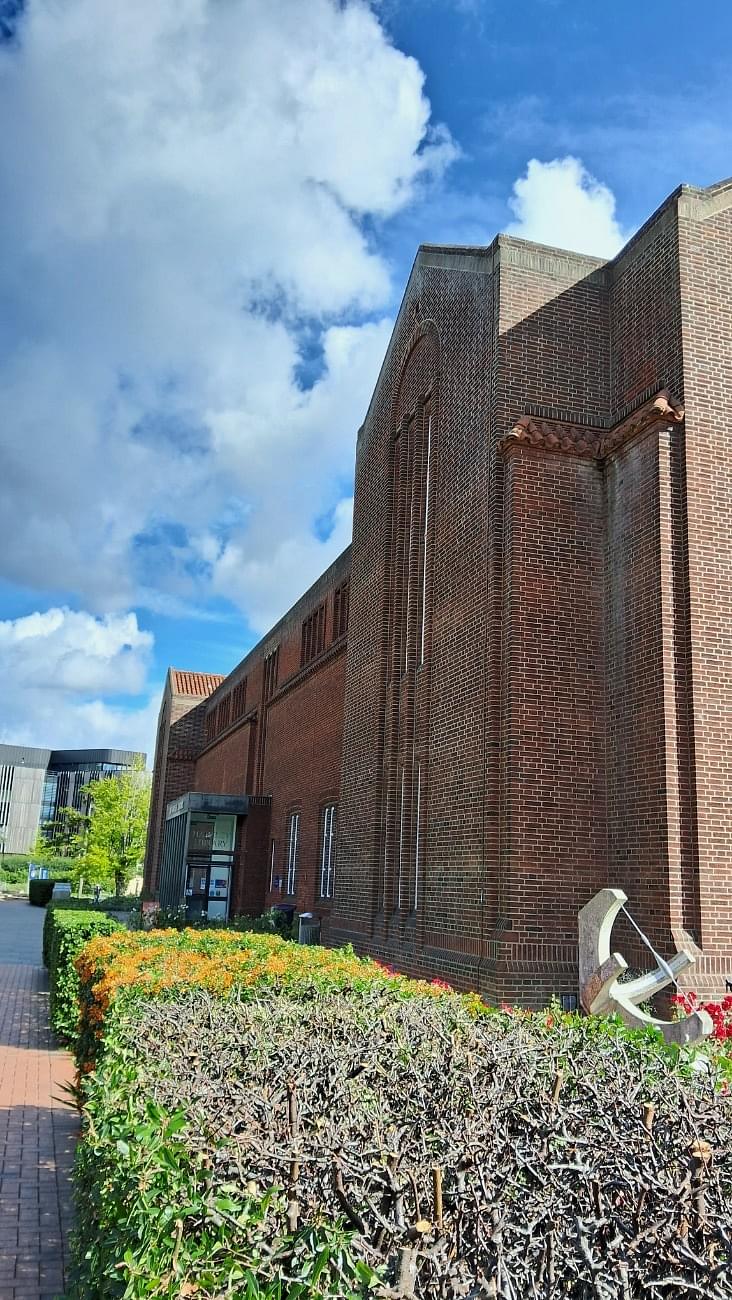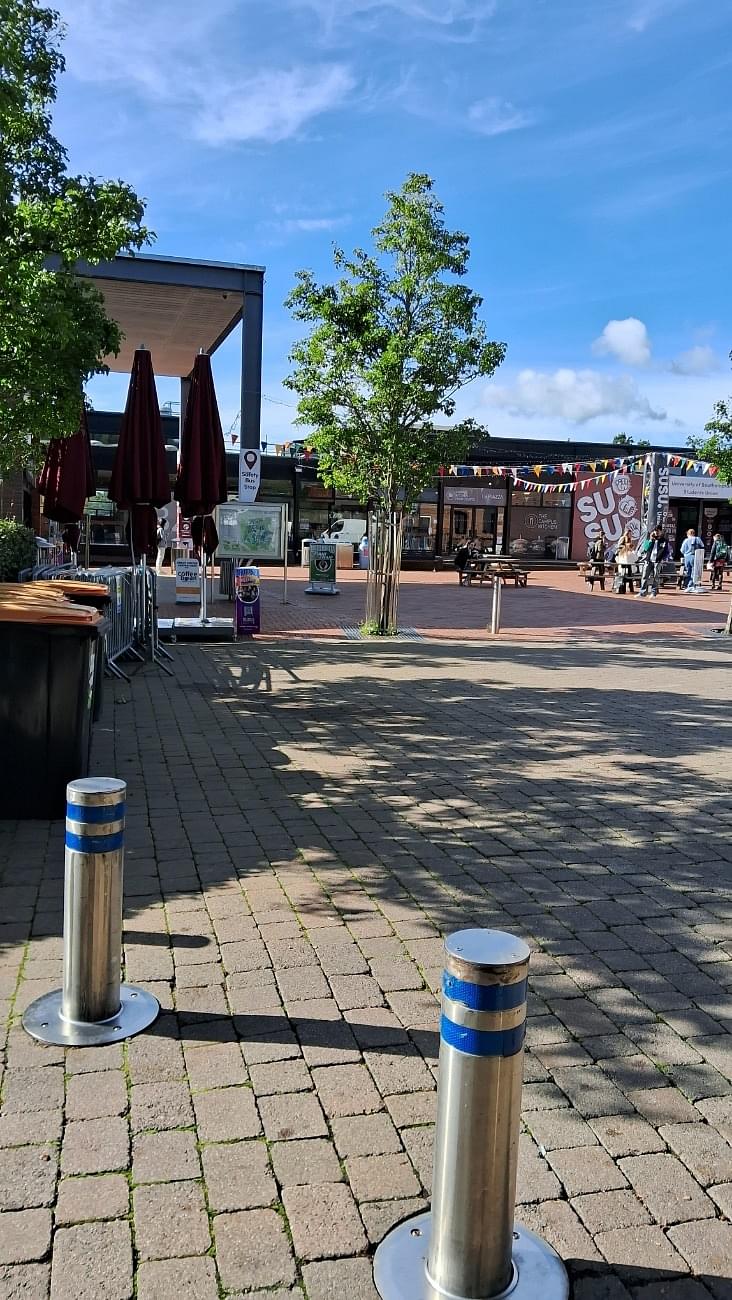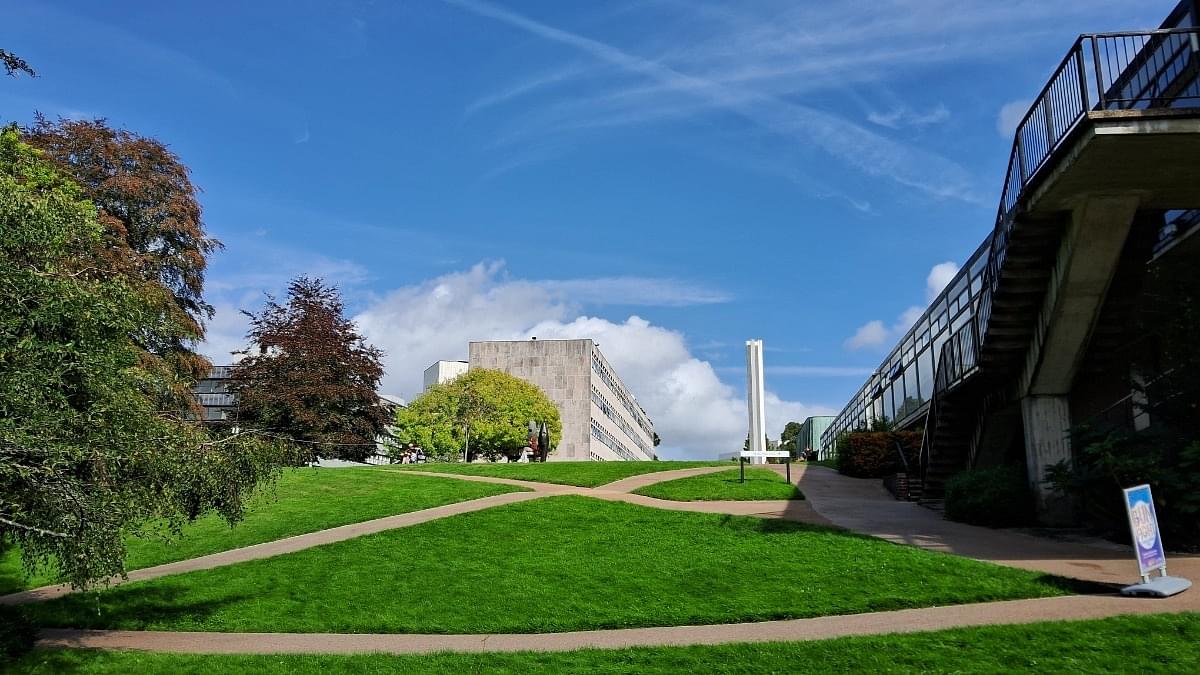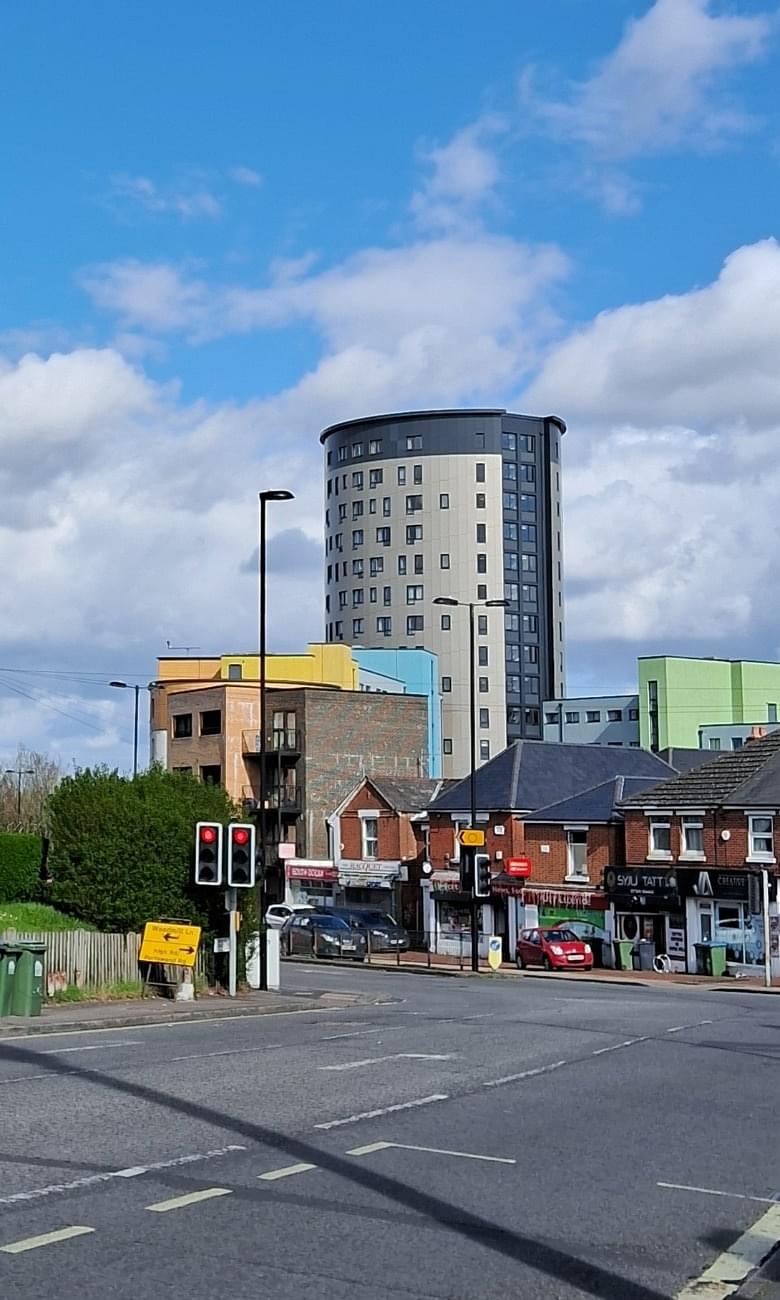What Students Say
Likes
- Hartley Library: It has the books required for your course so that you save money on the cost of study material. It has lots of seating and you can book a room on the website to study with your mates. There's a Starbucks within the library along with vending machines which makes long study sessions better.
- Accommodation: Student Halls are well maintained and the rooms are great. There's a weekly cleaning service included in your rent for the common spaces you would share with your flatmates. Your rent also includes utilities (electricity bill, water bill, laundry, etc.) These halls are safe and only authorized students and staff are allowed to enter. Plus, by staying in University accommodation, you get free bus rides in Unilink!
- Cafes and restaurants: There are lots of options for cafes and restaurants at various locations on the campus. The Arlott is a great place to meet your friends for a catch-up or meet your professors over a coffee. The Avenue cafe is also a great spot and is a nice place to grab a quick bite between classes.
Dislikes
- Less faculty contact: Lectures in PG courses are weekly and there are very few chances to speak with your professors/advisors unless you seek them out specifically. But it may differ for different courses or professors.
- Southampton city: It's a quiet city and there's not much happening all the time. Other than the City Centre, there aren't many hub spots. It can get dull at times.
- High cost of living: Unless you're living in student accommodation, it'll be difficult to save on living expenses. The general cost of living is not cheap.
Course Curriculum
- The difficulty level of the course was as expected. For a PG course, students were required to focus on research and self-study included more hours than attending lectures. It was intensively theoretical, being a humanities subject.
- The most positive aspect of the course was that students are given a choice in deciding their areas of specialised studies and can curate a course according to their interests and needs.
- The most negative aspect was the lack of contact time with professors. Unless you sought out to meet your professors, there were not many chances to interact with the faculty.
Admission Experience
- I applied to and was admitted to 5 UK universities.
1. University of Southampton - Admitted
2. University of Leeds- Admitted
3. University of Nottingham - Admitted
4. University of York- Admitted
5. University of Sussex- Admitted - I received an offer letter from these 5 universities. Then I fulfilled the requirements for an unconditional offer letter for University of Southampton by sending the documents requested and received a confirmed admission.
- WHY THIS UNIVERSITY: I chose University of Southampton mainly because it offered me the highest scholarship as compared to other universities. Moreover, I was reluctant to live in the northern part of England due to it's weather and Southampton's coastal weather suited me better.
- ADMISSION PROCESS: For the admission process, I first needed to submit a Statement of Purpose (SOP), two academic writing samples and a CV. I also had to attach a copy of my UG degree and other documents. I had to provide contact information of two of my UG professors as references. After about 3 weeks, I received a Conditional offer asking for a IELTS certificate showing a minimum of 6.5 score. Once this was submitted, I received an Unconditional offer within the next 3 weeks. After this, I applied for the scholarship and university accommodation.
- ELIGIBILITY CRITERIA: Required a First Division in UG in the same area of studies as the course applied for. Also, IELTS score of minimum 6.5.
- ADMISSION EXPERIENCE: The application form was quite simple and clear. The waiting is the most challenging part but if there were any problems or questions I had, I emailed the admission support and they helped me with the next steps.
- I applied for the September 2023 intake.
- The admission process took 2-3 months in total. I submitted the application form in early December 2022 and received a Conditional offer in mid January 2023. I submitted the requested documents and received an Unconditional offer in the beginning of March 2023. I then applied for a Visa in July and received it in around 3 weeks.
Class Schedule
- A typical day would have 1-2 classes a day for PG. Although it depends on the credits and course of the student.
- Average number of students in a class were 20. This depends on the popularity of the module and whether it was core or not.
- I was the only Indian student in my course. But there were other international students, such as from China and Indonesia.
Faculty
- Average faculty-student ratio was 1:15. This ratio meant that each student could not get enough attention from professors. Each student was allotted a supervisor whom they could contact if needed but this was more for general doubts rather than subject specific needs.
- The teaching methodology was research focused. Students were encouraged to research and discuss on their own rather than being lecture intensive. While this helps one for further academic plans, it reduces the amount of knowledge acquired from the faculty. It may be sufficient for academic careers but does not provide the practical knowledge one would need for immediately working in an industry.
- No, faculty members do not assist students in finding jobs. If there are any positions available, students are required to find out and apply through the university website. Although, faculty will provide a reference if you ask them.
- I have had a few great professors. Prof. Alireza was the first professor I came in contact with at the university and found him very passionate about teaching and research. Prof. Morton was really helpful when I was having a hard time getting adjusted with a new education system. Prof. Soni provide me with great guidance during my research. These professors were helpful and supportive of me as an international student.
Campus Life
-
There are 8 campuses of University of Southampton.
1. Highfield campus, Southampton
2. Avenue campus, Southampton
3. Bolderwood campus, Southampton
4. City Centre campus, Southampton
5. Waterfront campus. Southampton
6. Winchester Art School, Winchester
7. University of Southampton, Malaysia
8. University of Southampton, Delhi - In the UK campuses, there are libraries (Hartley Library in Highfield, Avenue campus library) and the Jubilee sports centre in Highfield. There are medical services available in Highfield where students are registered with a GP.
- Some of the major campus events include fresher's welcome, scholar's event and Stag nights. The university also celebrates through clubs regional festivals like Diwali and Holi.
- There are several extracurricular activities going on at all times at the campus because of the large number of clubs. Some clubs have weekly meet ups and some have monthly or however they require. Water sports are a speciality at Southampton as it's a coastal university with a waterfront campus. The SUSU is the student union organization that oversees the events and clubs of the entire student body and provides student support in all areas, including international students support.
Part Time Jobs
- Not many TA, RA or DA positions are typically available to the students at PG-Taught level. While some may be available in STEM courses, there are none in Humanities courses.
- There are other internships and part-time jobs available for students, both related and not related to research and teaching. These follow a general guideline of payment the minimum wage. Some academic projects pay around £11 per hour.
- As per Visa guidelines, an international student is permitted to work 80 hours per week. As such, a full -time international student can only get part-time jobs or internships.
- It is not difficult to secure part-time jobs on campus. Once registered with the student union, students receive opportunities to register for many part-time roles. These include organising university events, parking valets, working at the university film hall, etc.
- Part-time jobs off campus include working at stores like Primark or at restaurants in the city. These often pay less than on-campus jobs.
- Most Indians prefer to work as Student Ambassadors on-campus. It pays around £11 per hour and one can choose the job they'd like to do. Opportunities keep coming by and students select according to their schedules and interests. Once registered as an ambassador, these jobs are easy to come by. Other jobs like part-time internships or off-campus jobs are more difficult to find and they are often reluctant to take Indian students who would require Visa sponsorship in the future. To apply for a part-time job, students need to look for openings on various social media platforms and the university website. They'd be required to submit a cover letter, a CV and possibly a reference. Interviews are usually conducted after which the results are received via email.
Placement
- More than 90% graduates find a full time job soon after the course. Although, these are mostly jobs in fields of STEM and business as these are the fields that have employers participate in career fests.
- Average salary range for entry level jobs in my program is £23000 per annum.
- After graduation, students are provided career support through the University website. They look for jobs on various online portals. Some also secure jobs and internships through career fairs and campus recruitment.
- None of my batchmates applied for a placement in the UK as they either returned to their countries or they are planning to study further.
- Major companies that hire graduates from my program include publishers like Penguin Random House and HarperCollins. Some graduates also become teachers at schools.
Accommodation
- I found an accommodation through the university. I applied on the university website and got a room of my preference.
- The monthly rent was around £800 and it included utilities like electricity and water bills, laundry and bus tickets to Unilink.
- The accommodation booking process was quite simple on the university website and only required me to show an unconditional offer from the university.
- I would recommend applying early so that you find a room according to your requirements. Many late applicants find a room that is not what they required or do not find one at all. They then have to look elsewhere for private rooms where the rent is much higher and utilities are not included.
- My accommodation was close to campus and I could either walk or take a (free) bus to the campus.
Exams
- Exams required: IELTS with minimum score 6.5. Since it was a humanities subject, no other exams were required.
- Documents required: Statement of Purpose, Letter of Recommendation (from 2 UG professors or previous employers), CV, two Academic writing samples, UG degree and marksheet, Birth certificate, Passport
- There was no interview during the application process.
Fees
-
Total Tuition fee: £22000
Scholarship received: £5000
Payable tuition fee: £17000
Total Accommodation fee (for Ensuite, including utilities and bus pass): £9660 -
The fees could be paid yearly or semester-wise, as suitable for the student. These payments could be made through bank transfers or online payments.
Approximate monthly expenses:
Rent: £800
Groceries: £200
Restaurants, socialising etc.: £100
Scholarship
- Yes, I received the Humanities PG Global Talent scholarship.
- To be eligible, one must have an unconditional offer from the University. It is a competitive scholarship that required an SOP and considered my previous accomplishments and scores.
- The award amount was £5000 which was deducted from my tuition fee.
- Yes, a couple of my batchmates received similar scholarships.
- Total 25 students were awarded the scholarship across all Humanities departments. There were several other scholarships available for other subjects, especially STEM.


